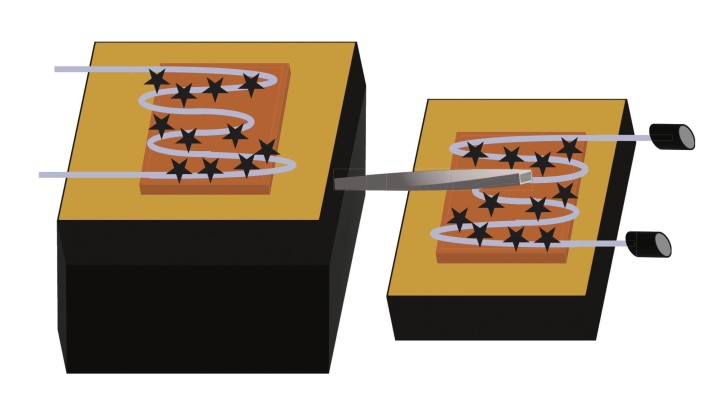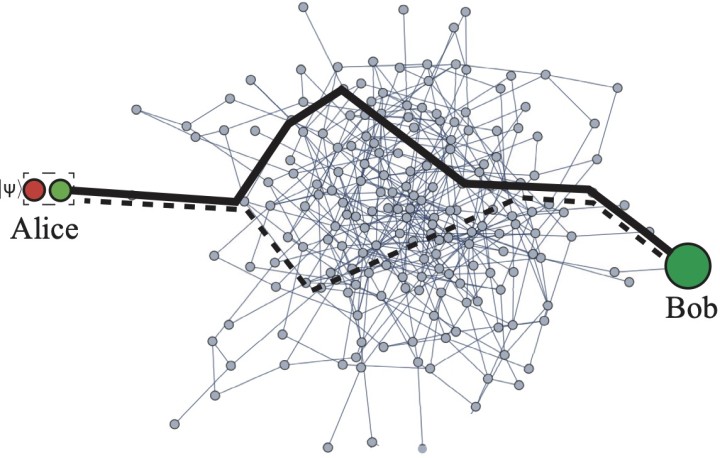Hybrid quantum systems and their applications
Over the last quarter century, quantum protocols and tasks have been realized in a variety of physical systems, including photons, atoms, ions, spins, quantum circuits, etc. Those physical systems however limit what protocls/tasks can be performed. Hybrid quantum systems are seen as a way to design composite quantum systems with the properties one desires. The hybridization of these disparate quantum systems should allow one to design new properties into our system (properties not present before) or exploit and enhance the best properties of the individual subsystems while suppressing the detrimental ones they have. In our units we explore:
• The design of hybrid systems whose properties have no natural analog.
• New technological applications associated with those hybrid systems.
Design of quantum network technologies
It is already well established that the principles of quantum mechanics will allow a future quantum internet that connects a wide variety of quantum devices together in a coherent and secure fashion. At its core, quantum repeaters will be a critical part in a similar fashion to the importance of repeaters in today’s telecommunications internet. Given the inherent differences between classical and quantum physics, it is essential to establish how a quantum internet will function including how we route information as well as the functionality quantum repeaters will need to provide. This will include the seamless integration of both quantum and classical communication resources. One’s considerations need to go far beyond quantum key distribution and instead focus on a true network of connected quantum devices, including computers and sensors. In this theme we explore:
• Designs of small and large scale robust quantum networks
• Early use models of quantum networks including edge and fog computing
• Quantum network encoding
Distributed Quantum Computation
It is now well established that almost all quantum computing technologies, ranging from superconducting circuits to ion traps to quantum dots exhibit technological limitations on the number of qubits that can be facbricated onto a single monolicitic chip. Distributed quanutm computation offers an elegant solution where multiple smaller quantum processors are linked through a quantum network – creating a more powerful quantum computing cluster. In our units we explore:
• Models for distributed quantum computation and the associated network requirements.
• Quantum device modelling







